 |
 |
| Human Rights |
|
|
|
|
| Human Rights and Women |
| Impact of Armed Conflict on Women and Children |
UNIFEM 2006
|
Shanti Malika (Women Network for Peace) was formed after a consultation of about 150 women rights activist's groups in March 2003 in Kathmandu after realizing that even during the peace talks there were no women present or participating either from the Maoist's side or from the government side for peace negotiation process. The struggle of day-to-day survival, social injustice and discrimination, illiteracy and unemployment are some of the reasons that prevent women from actively participating in peace building. Irresponsible politics gender injustice is also one of the reasons for the non-participation of women in peace process of Nepal. Women do not lead any of the political parties of Nepal and have never headed the government. This absence of women in peace negotiations may well have been a contributor to their failure. Therefore, in the current talks, and for the sustainability of peace in general, women should be included in the peace process. After that Shanti Malika realized that the women activists in peace building have as yet been unable to influence the peace agenda in Nepal and they are ignored or undermined by all sector as peace workers. Shanti Malika working for women's empowerment, initiated discussions to identify strategies for a womenled peace movement, which would be inclusive and representative of Nepalese society. After a series of meetings with representatives of its organisational members, Shanti Malika identified the need to share its ideas with a wider group of women and men, who were committed to the need for women's leadership for peace in Nepal. Now Shanti Malika is committed to make a real Malika from grass root to international level. Shanti Malika realized that the ideas of all women (and men supporters of women and peace) have not been debated thoroughly. Also, women activists need to build trust among them for the movement to progress further. Thus Shanti Malika envisages a nation wide movement that brings in a gendered lens to look at the significant role of women in peace building.
|
![]() National
Peace campaign
National
Peace campaign
National Peace Campaign is a non-governmental, non-profit, and non-sectarian educational organisation committed towards promoting peace and conflict resolution in South Asia through education, research, training and diplomacy. It was established in 1999. NPC perceives the problem in South Asia as a common threat to peace in the region. Primarily focusing in Nepal, the program of the NCP will aim at creating a peaceful society in the South Asian region. The NPC was established with the vision of building a peaceful, democratic society in Nepal in order to fully realize and respect peace, justice and human rights. The NPC envisages a need for an action-oriented movement for a peaceful community, an equitable social system and a respectful life for South Asia in particular and the world in general.
| National Peace campaign |
|
![]() Nagarik
Aawaz
Nagarik
Aawaz
Nagarik Aawaz (NA) meaning 'The Voice of the Citizen' was established on July 17, 2001 as a platform for concerned development professionals and organisations that felt the need to act together towards peace. NA consists of mainly volunteers contributing their skills, time expertise and resources to ground NA.
| Nagarik Aawaz |
|
![]() Friends
For Peace (FFP)
Friends
For Peace (FFP)
Friends for Peace (FFP) is a non-governmental, organisation established in May 2004 with a view to facilitate research in the fields of conflict transformation and to contribute to future peace process in Nepal.
| Friends For Peace (FFP) |
|
![]() Collective
Campaign for Peace (COCAP)
Collective
Campaign for Peace (COCAP)
COCAP is a national network of Peace and Human rights organisation in Nepal. It was born out of a national symposium on conflict transformation and peace building in June 2001.It was originally conceived as a loose, informal forum for information sharing among participation of the symposium.
| Collective Campaign for Peace (COCAP) |
|
![]() Women's
Rehabilitation Center (WOREC)
Women's
Rehabilitation Center (WOREC)
As a result of the ongoing conflict in the nation, most people were forced to migrate to foreign lands or they were forced to leave their native villages and move to the district center or to Kathmandu Valley, which has resulted, in an increase in the population of Kathmandu Valley. Due to this, the number of unemployed people is increasing day by day.
| Women's Rehabilitation Center (WOREC) |
|
![]() Women
for Human Rights
Women
for Human Rights
A woman for Human Right (WHR), Single Women Group is a non-governmental organisation established in 1994. WHR has been formed to address the rights of Single Women in Nepal. It is providing services to the needy single women and their children facing difficult circumstances. WHR passed a national declaration to use the word 'Single Women', instead of widows. The change in the terminology has been effected since the word 'widow' in Nepali society is viewed with disdain, including humiliation and agony.
| Women for Human Rights |
|
![]() South
Asia Partnership Nepal (SAP-Nepal)
South
Asia Partnership Nepal (SAP-Nepal)
South Asia Partnership Nepal (SAP-Nepal) is a non-government development organisation and has been advocating for the social, political and economic enhancement of the Nepalese people since 1985. SAP-Nepal started its development journey as an international organisation in 1985 and transformed into a facilitating organisation in 1989.
| South Asia Partnership Nepal (SAP-Nepal) |
|
![]() Nepal
Children's organisation (NCO)
Nepal
Children's organisation (NCO)
Nepal Children's organisation (NCO), a child-right-welfare social organisation popularly known as Bal Mandir. It was founded under the patronage of Her Majesty the Queen Mother was established in 1964.It has been continuously working in the field of well-being of the homeless, parentless, abandoned and disadvantaged children and organizing various programs to protect their rights. Presently, NCO is running 10 children's homes with about 550 children aged 0- 22 years and has 75 district committees and more than 3,852 voluntary members across the country. NCO has broadened its areas of work with self-motivated responsibility of protecting entire concerns associated with children who have suffered the horrors of war, community violence and intolerance and develops peace and reconciliation with the help of multinational volunteers.
| Nepal Children's organisation (NCO) |
|
![]() The
National Human Rights Commission (NHRC)
The
National Human Rights Commission (NHRC)
The National Human Rights Commission (NHRC) of Nepal is an and autonomous statutory body established in the year 2000 under Rights Commission Act 1997 (2053 BS). It has a separate responsibilities in the constitutional legal system of the country.
| The National Human Rights Commission (NHRC) |
|
![]() Legal
Aid and Consultancy Center (LACC)
Legal
Aid and Consultancy Center (LACC)
Legal Aid and Consultancy Center (LACC) is a non-governmental legal resource organisation dedicated to the promotion and protection of the rights of women and children. It was established in 1987.
| Legal Aid and Consultancy Center (LACC) |
|
![]() Jagaran
Nepal
Jagaran
Nepal
Jagaran Nepal was established with the vision of realizing women's rights, sustainable peace, good governance and social justice for the formation of an equitable society in Nepal. In order to achieve this vision, the organisation has nine programs that focus on women and children. These programs range from grassroots skill development and human rights training to national and international advocacy for the promotion of human rights and good governance. Jagaran Nepal works directly with women and children victims of the conflict, providing funding, counseling, and training.
| Jagaran Nepal |
|
![]() Institute
of Human Rights Communication, Nepal (IHRICON)
Institute
of Human Rights Communication, Nepal (IHRICON)
Founded in 2001, IHRICON was established to conduct media monitoring and public hearings on children and women in armed conflict. IHRICON has been involved in human rights training for journalists, NGOs, and security agencies as well as initiated district and village level women's working groups that engage in peace and conflict resolution.
| Institute of Human Rights Communication, Nepal (IHRICON) |
|
![]() Informal
Sector Service Centre (INSEC)
Informal
Sector Service Centre (INSEC)
Established in 1990, INSEC is dedicated to improving human rights and social justice in Nepal. The organisation works to train women, children, and the elderly at the community level, to raise awareness among government and nongovernment organisations, as well as to monitor and advocate for the signing and implementation of all six major international human rights treaties.
| Informal Sector Service Centre (INSEC) |
|
![]() Forum
for Women, Law and Development (FWLD)
Forum
for Women, Law and Development (FWLD)
Forum for Women, Law and Development (FWLD) is an NGO established in May 29, 1995 to work for the protection, promotion and advancement of women's human rights, eliminating all forms of discrimination against women. The Forum uses law as an instrument to address discriminations in women's lives and to promote their human rights. Significantly, FWLD has contributed in ensuring women's right to property, right to reproductive health and implementation of CEDAW and BPFA at the domestic level.
| Forum for Women, Law and Development (FWLD) |
|
![]() Didi
Bahini
Didi
Bahini
Founded in 1991, Didi Bahini is committed to involving women in Nepal's development process. Didi Bahini works to promote gender equality in a number of areas including education, agriculture, economic rights, governance, natural resource management, and conflict resolution.
| Didi Bahini |
|
![]() Child
workers in Nepal Concerned Centre (CWIN)
Child
workers in Nepal Concerned Centre (CWIN)
Child Workers in Nepal Concerned Centre (CWIN) is an organisation in Nepal that works for child rights.It was established in 1987 by a group of university students. It focuses its activities on the issues of child rights, girl's rights, child labour, trafficking, bonded labour, street children, child abuse and children in armed conflict.
| Child workers in Nepal Concerned Centre (CWIN) |
|
![]() Centre
for Victims of Torture, Nepal (CVICT)
Centre
for Victims of Torture, Nepal (CVICT)
Founded in 1990, CVICT is a Nepali non-profit organisation committed to rehabilitating victims of torture as well as advocating for the prevention of torture and the protection and promotion of human rights. Recently, CVICT has identified child victims of conflict as a target group for its efforts.
| Centre for Victims of Torture, Nepal (CVICT) |
|
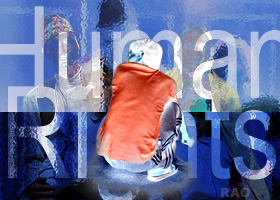 |
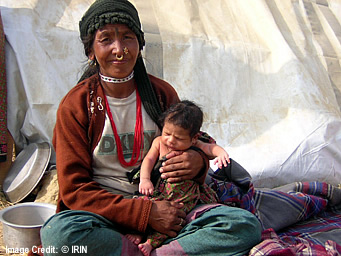
|
| Source: UNIFEM, UNITED NATIONS Development Fund for Women, "A Rapid Scan-organisations Working on Women and Peace in Nepal", 2006 |
| External link |
| United
Nations Development Fund for Woman UNIFEM |
UNIFEM |
| more information |
|
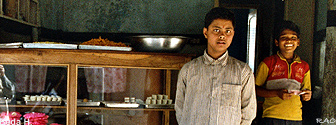 |
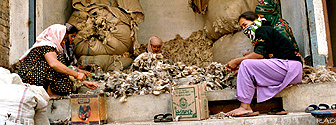 |
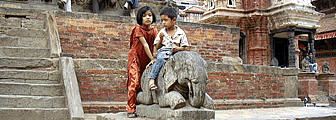 |


